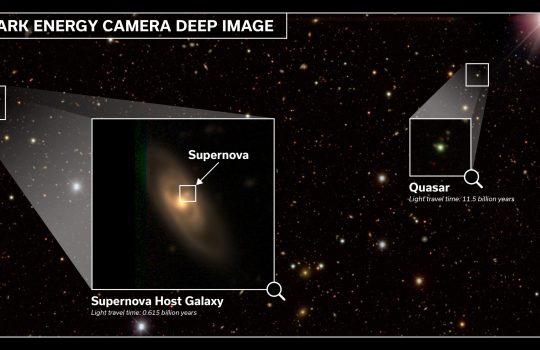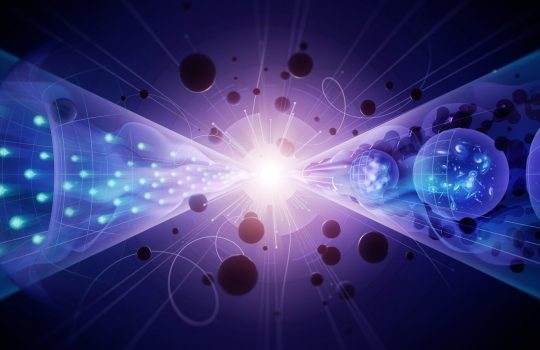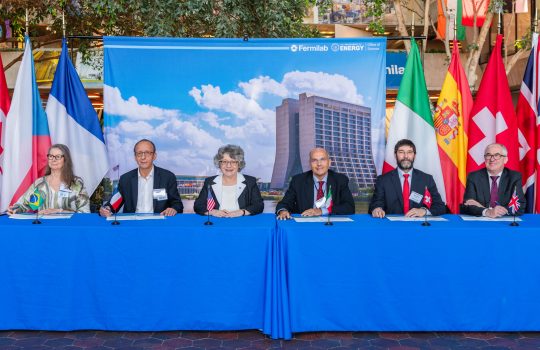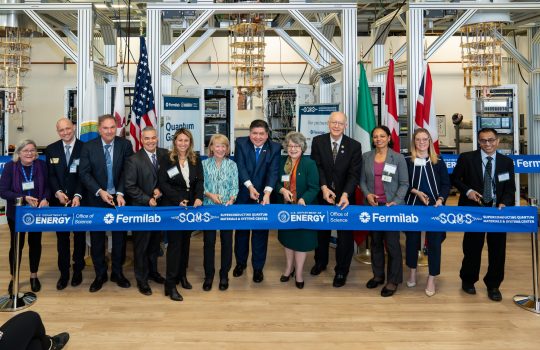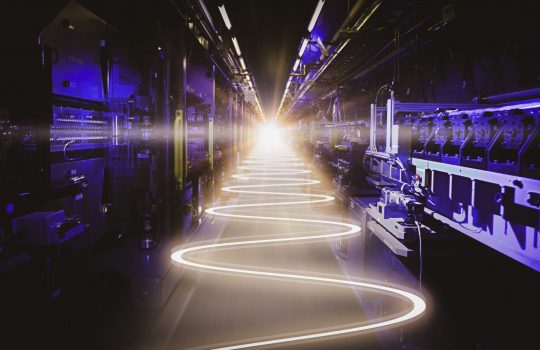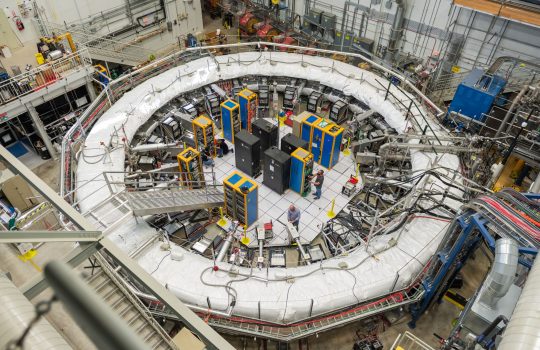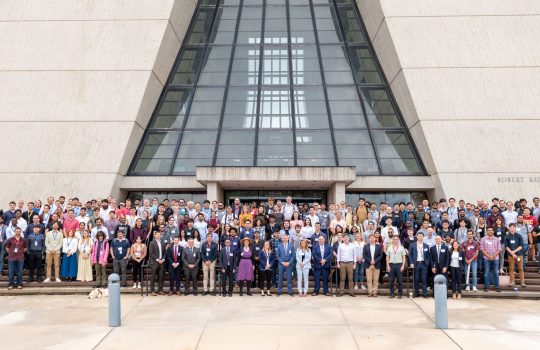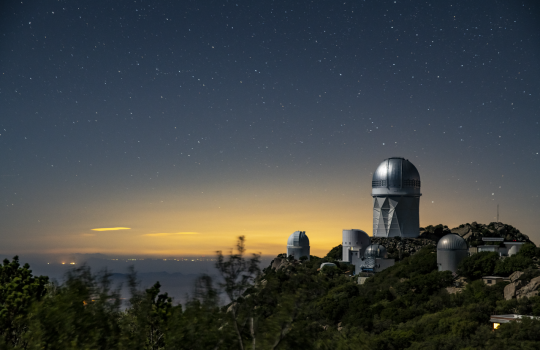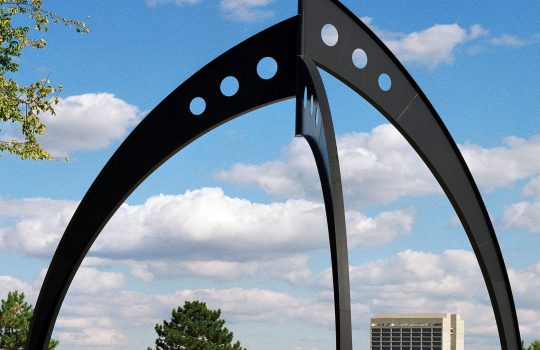Final supernova results from Dark Energy Survey offer unique insights into the expansion of the universe
In the culmination of a decade’s worth of effort, the DES collaboration of scientists analyzed an unprecedented sample of more than 1,500 supernovae classified using machine learning. They placed the strongest constraints on the expansion of the universe ever obtained with the DES supernova survey. While consistent with the current standard cosmological model, the results do not rule out a more complex theory that the density of dark energy in the universe could have varied over time.
Advisory Panel Issues Field-Defining Recommendations for U.S. Government Investments in Particle Physics Research
The 2023 P5 report represents the major activity in the field of particle physics that delivers recommendations to U.S. funding agencies.
International science organizations sign agreement to provide hardware for the Deep Underground Neutrino Experiment
- DUNE
- FAPESP
- INFN
- international collaboration
- international engagement
- particle detector technology
- STFC
- UNICAMP
On Nov. 17, representatives of funding agencies from five countries signed a memorandum of understanding, affirming their commitment to contribute to the construction of components for DUNE.
Fermilab’s SQMS Center inaugurates quantum information science and technology facility: “The Quantum Garage”
The Fermilab-hosted SQMS Center achieved a significant milestone with the opening of one of the largest quantum research laboratories in the country. The lab hosts multiple experimental platforms at the forefront of quantum information science, technology and workforce development.
Fermilab receives DOE funding to further develop nationwide quantum network
DOE awarded Fermilab $9 million to further develop technology for national-scale quantum networks to improve the transmission of information as part of the Advanced Quantum Network for Scientific Discovery project.
SLAC fires up the world’s most powerful X-ray laser: LCLS-II ushers in a new era of science
With up to a million X-ray flashes per second, 8,000 times more than its predecessor, it transforms the ability of scientists to explore atomic-scale, ultrafast phenomena that are key to a broad range of applications, from quantum materials to clean-energy technologies and medicine.
Muon g-2 doubles down with latest measurement, explores uncharted territory in search of new physics
Scientists working on Fermilab’s Muon g-2 experiment released the world’s most precise measurement yet of the magnetic moment of the muon, bringing particle physics closer to the ultimate showdown between theory and experiment that may uncover new particles or forces.
Fermilab’s SQMS Center hosts inaugural U.S. Quantum Information Science program to develop quantum workforce
The U.S. Quantum Information Science school, hosted at Fermilab, will be the one of the largest federally sponsored events to educate the next generation of quantum science researchers, engineers and support staff.
DESI early data release holds nearly two million objects
The first batch of data from the Dark Energy Spectroscopic Instrument is now available for researchers to mine. Taken during the experiment’s “survey validation” phase, the data include distant galaxies and quasars as well as stars in our own Milky Way.
Visiting Fermilab will require REAL ID-compliant identification, beginning May 3, 2023
Beginning May 3, all visitors to Fermilab must show REAL ID-compliant identification to access the public areas.

